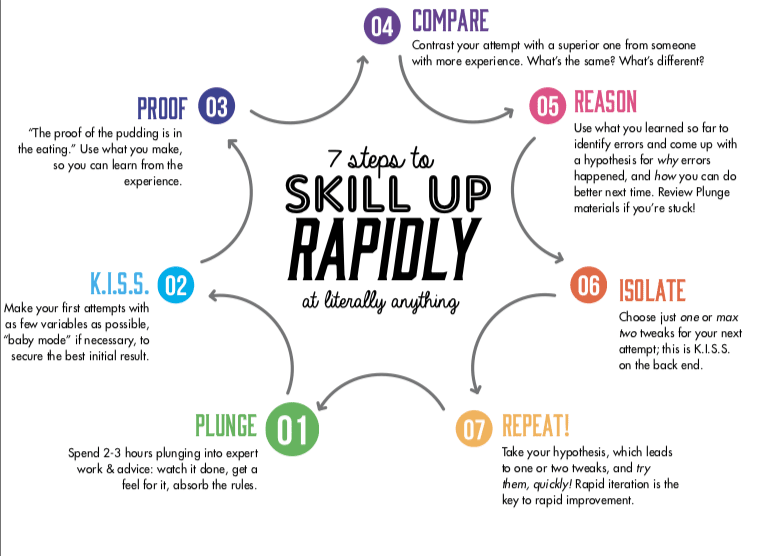Many people fail when starting a business, not because of bad ideas, but because they treat their business like a hobby instead of treating it like their future.
Here are 13 common failure modes, and below, how you can avoid them.
FAILURE THINKING #1:
My new product didn’t make money in the first month or two? Abandon the idea and make a new product.
FAILURE THINKING #2:
My new product DID make money in the first few months, but not now? Abandon the idea and make a new product.
FAILURE THINKING #3:
My new product made A LOT of money? Well, that success isn’t real somehow, I’d better throw all that progress away and try something totally disconnected and more ~ambitious~.
(you laugh but i’ve seen this so many times)
FAILURE THINKING #4:
I shipped it, now I’m done.
FAILURE THINKING #5:
I’m bored, I quit.
FAILURE THINKING #6:
My product isn’t making sales, but instead of working to make sales, continuously working on the product.
FAILURE THINKING #7:
If the product doesn’t sell itself, it’s not good enough, I’m not good enough, I quit.
FAILURE THINKING #8:
I got distracted by some shiny new whatever, and now I feel guilty about neglecting the product. But instead of doing a little emotional labor to go back to it, I’ll just quit forever in shame.
FAILURE THINKING #9:
Someone else is doing something similar, I quit.
FAILURE THINKING #10:
Regurgitating deep-sounding business crap like “market saturation” without ever even looking up what that means, as an excuse to not try.
FAILURE THINKING #11:
Nobody would buy from ME - but you never attempt it to find out.
FAILURE THINKING #12:
I’m not good enough, and no, I will not look around to see if there are people not as good as me who are doing better than me.
FAILURE THINKING #13 (baker’s dozen!):
Doing the same things over & over when they don’t work.
Want success? Great! You can get it! Bring some professionalism to your side hustle.
- A Professional analyzes the evidence to understand why they didn’t make any sales.
- A Professional stacks their smaller successes into bigger ones.
- A Professional follows through on the work that comes after shipping.
- A Professional doesn’t need excitement to sit down and do their job.
- A Professional does the whole job, not just the parts of the job they love doing.
- A Professional markets and sells their work.
- A Professional doesn’t let their mistakes define them.
- A Professional cares more about helping their customers than their idea being unique.
- A Professional seeks to understand if what others say is true.
- A Professional tries something to see what happens.
- A Professional learns from each attempt, and adjusts.
Want to succeed in business? Be a professional.

There's more where that came from
We email every Wednesday with the latest insights from our business, our students, and our research. Drop your email in the box below and we'll send new stuff straight to your inbox!
Absolutely no spam, ever. We respect your email privacy. Unsubscribe anytime. Huzzah!


